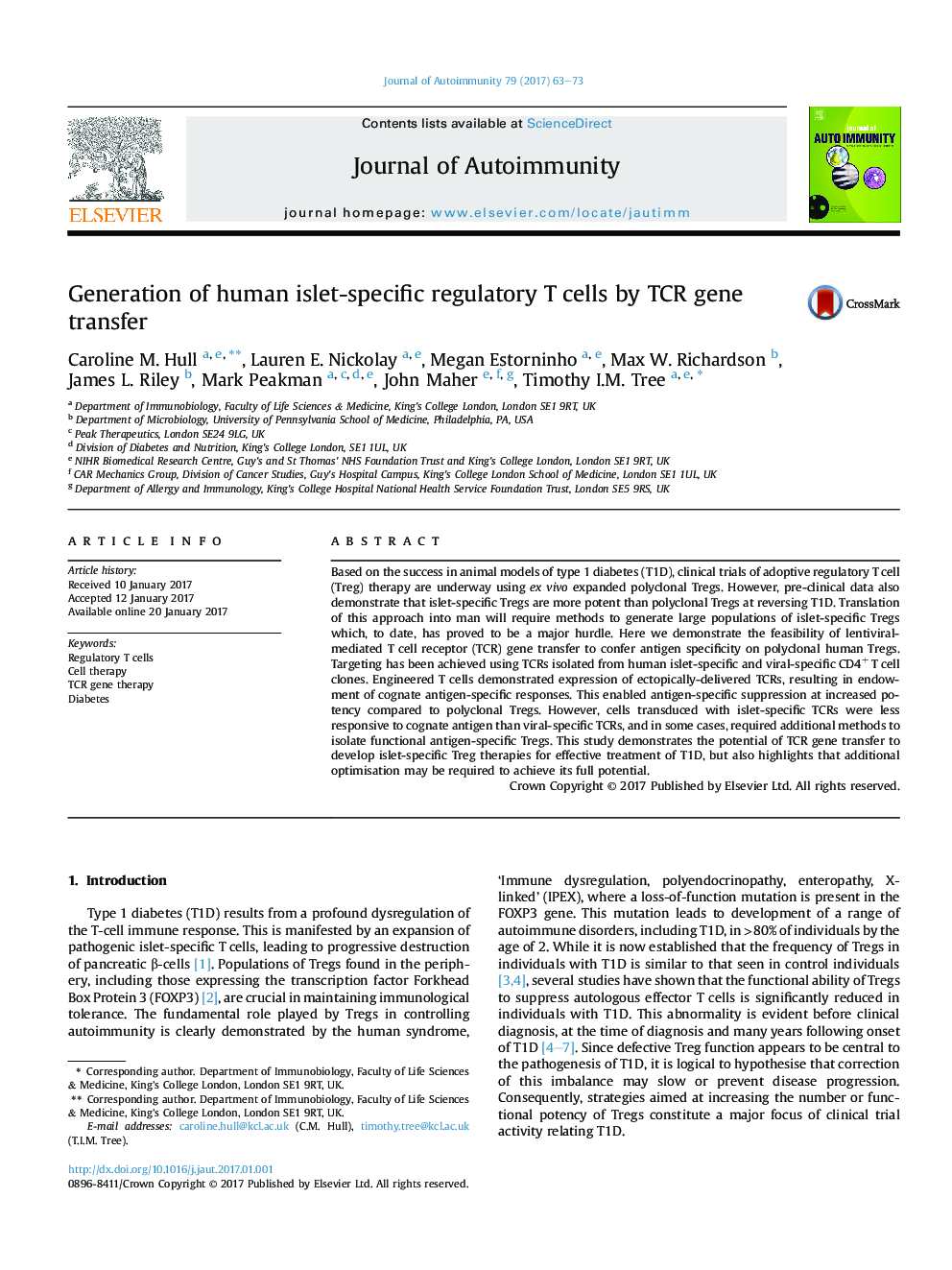| Article ID | Journal | Published Year | Pages | File Type |
|---|---|---|---|---|
| 5667885 | Journal of Autoimmunity | 2017 | 11 Pages |
â¢Polyclonal Treg transfer has reached the clinic as a therapy for type 1 diabetes.â¢Mouse models show that antigen specific Tregs may be a more effective therapy.â¢Lentiviral TCR gene transfer can redirect the specificity of polyclonal Tregs.â¢This approach can be used to generate large numbers of islet specific Tregs.â¢Islet specific Tregs were capable of mediating antigen specific suppression.
Based on the success in animal models of type 1 diabetes (T1D), clinical trials of adoptive regulatory T cell (Treg) therapy are underway using ex vivo expanded polyclonal Tregs. However, pre-clinical data also demonstrate that islet-specific Tregs are more potent than polyclonal Tregs at reversing T1D. Translation of this approach into man will require methods to generate large populations of islet-specific Tregs which, to date, has proved to be a major hurdle. Here we demonstrate the feasibility of lentiviral-mediated T cell receptor (TCR) gene transfer to confer antigen specificity on polyclonal human Tregs. Targeting has been achieved using TCRs isolated from human islet-specific and viral-specific CD4+ T cell clones. Engineered T cells demonstrated expression of ectopically-delivered TCRs, resulting in endowment of cognate antigen-specific responses. This enabled antigen-specific suppression at increased potency compared to polyclonal Tregs. However, cells transduced with islet-specific TCRs were less responsive to cognate antigen than viral-specific TCRs, and in some cases, required additional methods to isolate functional antigen-specific Tregs. This study demonstrates the potential of TCR gene transfer to develop islet-specific Treg therapies for effective treatment of T1D, but also highlights that additional optimisation may be required to achieve its full potential.
